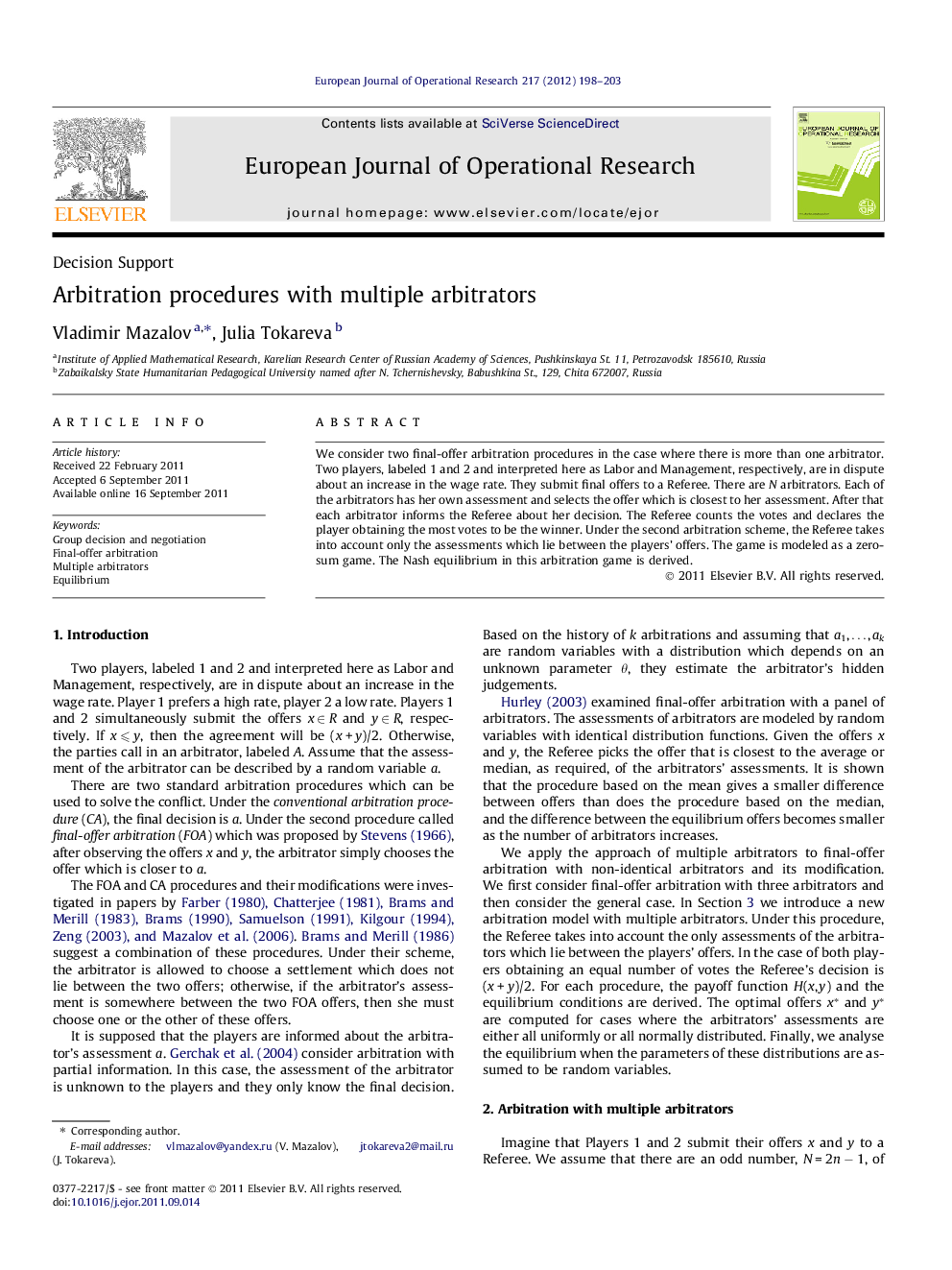| Article ID | Journal | Published Year | Pages | File Type |
|---|---|---|---|---|
| 478460 | European Journal of Operational Research | 2012 | 6 Pages |
We consider two final-offer arbitration procedures in the case where there is more than one arbitrator. Two players, labeled 1 and 2 and interpreted here as Labor and Management, respectively, are in dispute about an increase in the wage rate. They submit final offers to a Referee. There are N arbitrators. Each of the arbitrators has her own assessment and selects the offer which is closest to her assessment. After that each arbitrator informs the Referee about her decision. The Referee counts the votes and declares the player obtaining the most votes to be the winner. Under the second arbitration scheme, the Referee takes into account only the assessments which lie between the players’ offers. The game is modeled as a zero-sum game. The Nash equilibrium in this arbitration game is derived.
► We consider two final-offer arbitration procedures with multiple arbitrators. ► Each arbitrator follows FOA rules and the Referee takes the final decision on the basis of majority voting. ► The equilibrium strategies of the players under both procedures are derived in analytical form. ► We estimate the expected difference between the equilibrium offers.
